Best QA Software Testing Tools in 2024
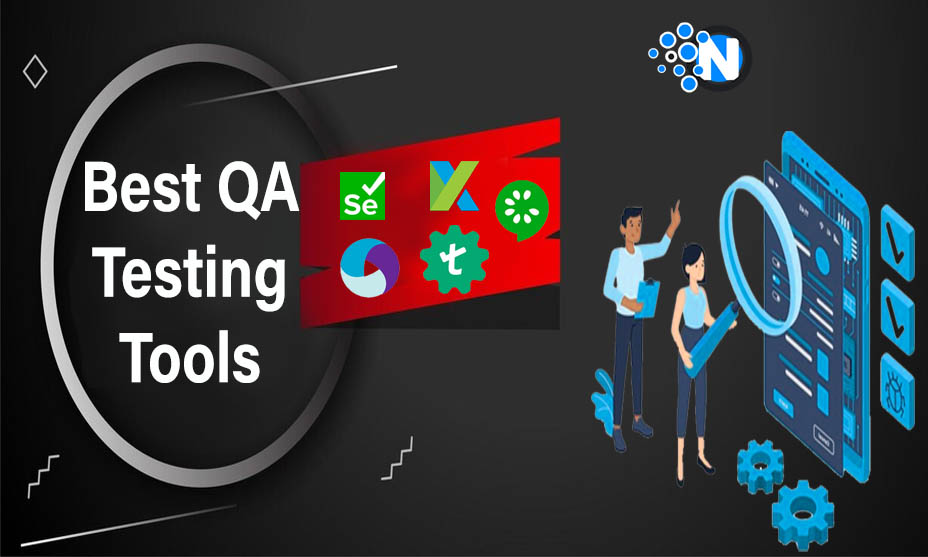
QA Testing Tools have become an integral part of software development and product releases. The QA Tester plays a key role in ensuring the delivery of quality products to end-users, by validating the functionalities, minimizing bugs and flaws, optimizing performance & speed, and maintaining standards in terms of compliance. A professional QA Testing must possess knowledge of a wide range of testing tools out there that facilitate various levels of tests ranging from unit tests up to deployment-ready versions. In this detailed note, we will provide a comprehensive list of the best QA Testing Tools that you should consider in 2024.
What is QA Tester?
QA Tester, also known as Quality Assurance Tester, is an individual responsible for verifying the quality of a product or service to meet the requirements of the customer and organizational standards. The QA Tester performs manual tests and automated testing processes to ensure that all components of a product or service are functioning as designed. Developers strive to break the product or cause it to malfunction so that they can gain insight and make necessary adjustments before launching. This keeps the product top-notch and gives customers an exceptional experience.
Types of QA Testing:
There are almost 7 types of QA Testing tools that are commonly used. These include:
Unit Testing:
This is the first level of testing in the software development cycle. It tests individual components or units of code to ensure that they are working as designed.
Integration Testing:
This phase is conducted to identify any errors that may have been missed in the unit testing phase. It tests the integration of different components and modules.
Functional Testing:
This type of testing verifies that the product or service functions as expected. It ensures that the system meets user requirements and business goals.
Regression Testing:
This process checks to see if changes made to the product have negatively impacted any other part or functionality of the product.
Acceptance Testing:
This is conducted to ensure that the product meets the customer’s expectations. It tests the product from an end-user point of view and checks for usability, stability, performance, etc.
Usability Testing:
This type of testing is carried out to determine the ease with which users can use a product or service. It tests the user interface, navigation and overall experience of the product.
System Testing:
This is done to check if all the components of a system work together as expected. It is a comprehensive check of the entire system or product.
Benefits of Using QA Testing tools:
QA Testing tools are essential for ensuring software quality and have many benefits, such as:
Improved Product Quality:
Automation increases the accuracy of tests, ensuring that the product meets customer expectations. The development team can ensure the software is compatible with operating systems and its functions are user-friendly by running a rigorous series of tests. A QA tester can guarantee an even higher quality product for users while also confirming that it conforms to all major platforms.
Reduced Time and Costs:
Automating tests reduces the time needed to perform manual tests and shortens the overall development timeline. Automation not only simplifies production but also lowers the end cost of a product due to reduced manual labor. Users don’t have to wait long for a product launch, as the development process is significantly faster with QA automation.
Security:
QA Testing tools help identify security vulnerabilities and loopholes in a product, which can be fixed before the product goes live. Testing software products through the use of testing tools not only protects users from potential security risks but also assists developers in finding and addressing coding vulnerabilities.
Reliability:
QA Testing Tools also help ensure that a product is reliable and performs consistently each time it is used. Automated tests can be run multiple times to make sure the software is functioning properly and any bugs are identified before the product reaches its market.
Efficiency:
Automated tests are more accurate and efficient than manual tests. The early identification of tiny issues can potentially lead to serious problems if not addressed quickly. Automation also eliminates the risk of human error, rendering the process more dependable and efficient. Two experts can make the process significantly more efficient and productive by combining forces.
Faster Testing Cycles:
Automated testing tools enable testers to run tests quickly, which saves time and money. Automation allows testers to focus on more complex tasks while the tools take care of mundane, repetitive tasks. This leads to faster testing cycles and helps reduce costs.
Improved Return on Investment (ROI):
Using QA Testing tools can help developers save time and money by reducing the amount of manual labor needed to test the product. Automated tests cost less and are faster than traditional testing methods, leading to a higher ROI for businesses. Automation also reduces the time to market, allowing businesses to launch products faster and capitalize on new opportunities.
Best QA Testing Tools in 2024:
With so many software QA testing tools accessible in the market, choosing the perfect one for your project can be overwhelming. However, you don’t have to wade through a myriad of choices since some stand out from the rest and offer excellent results. Here is the list of the top 8 QA Testers you should consider in 2024:
Selenium

QA testing tool Selenium is an open-source testing tool that enables developers to automate web applications across different browsers and platforms. It is one of the popular QA testing tools choice for functional, regression, and GUI-based testing of web applications. This tool is incredibly versatile and can be utilized with nearly any coding language.
There are millions of users around the globe that have become part of the its community, and such membership yields countless advantages. It is highly extensible and can be combined with other tools to create powerful automation pipelines. It also has extensive support for different browsers.
Pricing:
- Customized pricing
Katalon
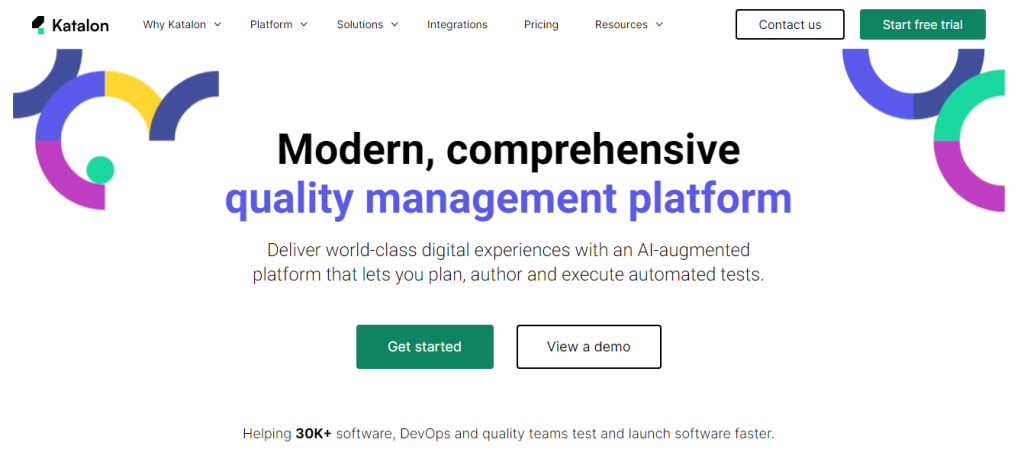
The Katalon is an automation testing solution for web and mobile applications. It offers seamless integration with popular open-source test frameworks such as Selenium and Appium. This tool enables users to create and execute automated tests with minimal effort, saving them time and money. This QA Tester is simple enough for non-technical QA team members, yet powerful enough to support complex test scenarios. It also allows users to easily access and analyze the results of their tests, giving them the insights they need to improve their applications.
Katalon Studio also provides support for third-party extensions, allowing users to extend its capabilities and integrate with external systems. This open-source tool is highly customizable and gives developers the flexibility they need to create automated tests that fit their exact needs.
Pricing:
- Free: $0/month
- Premium: $25/month
- Ultimate: Customized
Cucumber
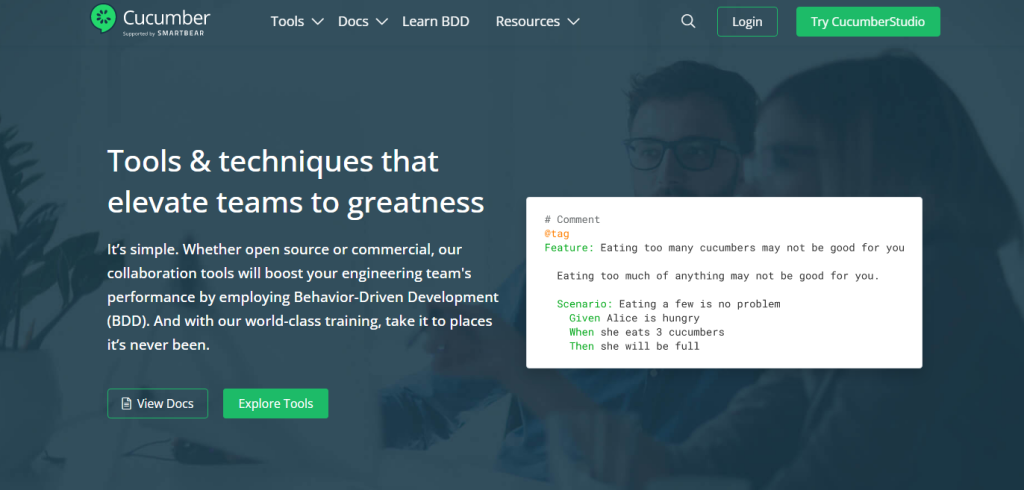
The Cucumber is a popular open-source Behavior Driven Development (BDD) framework that helps teams communicate effectively and collaborate on software development. This QA Tool allows testers to write tests in plain English, making them easy for everyone on the team to understand. It is ideal for Agile development environments, as it allows testers to easily create automated tests that can be integrated with existing projects.
The Cucumber offers a wide range of features, including support for cross-browser testing, data-driven tests, and parallel execution.QA testers everywhere are raving about this due to its commitment to creating the best user experience. This program is crafted with a straightforward, English-like language called Gherkin and only functions in web environments. A remarkable 20% of all QA teams use this fantastic resource.
Pricing:
- Starter: €32/month
- Cloud: €37/month
Testsigma
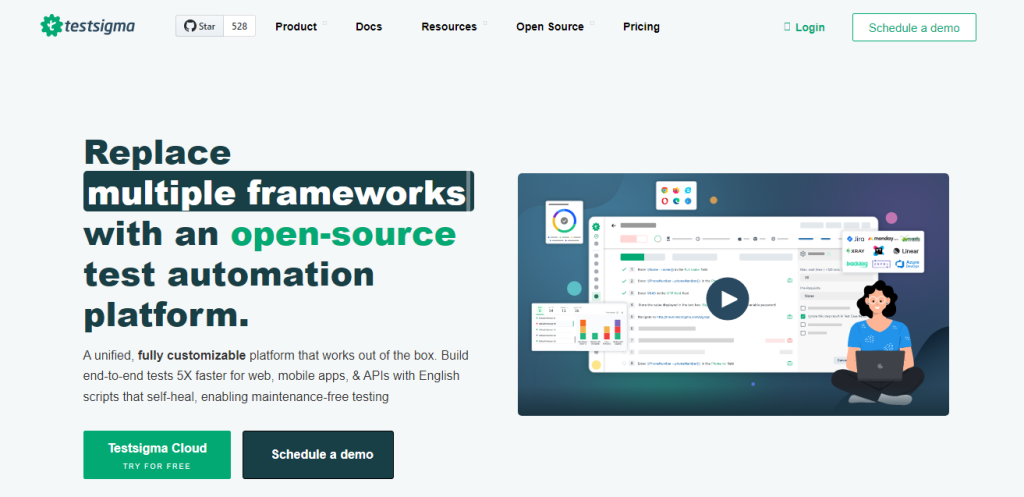
The Testsigma is an automated end-to-end testing platform that enables developers to rapidly generate test cases from simple English scripts. It is an efficient and cost-effective tool that can be used to create automated tests. This QA tester also has advanced reporting and analytics capabilities, making it an ideal choice for businesses.
You can craft and run scripts on a variety of devices and 800+ browsers across both Android and iOS smartphones with Testsigma. You’ll receive real-time reports of each test script execution’s results for thorough analysis.
Pricing:
- Free Plan $0/month
- Pro: $349/month
- Custom: For TCOEs and multiple large teams
Appium
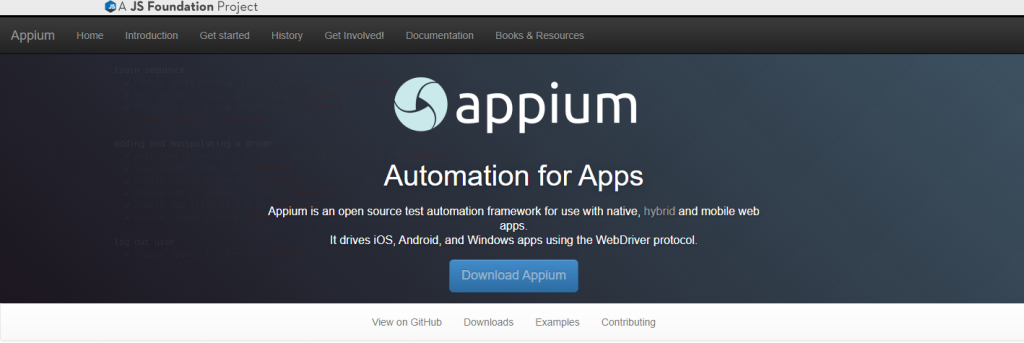
The Appium is taking the automation testing world by storm and rapidly becoming one of the most sought-after open-source mobile solutions. This powerful tool was designed with a unique approach in mind – you should be able to test native apps without needing an SDK or having to recompile them. It also supports both hybrids as well as web applications making it incredibly versatile for different use cases.
This QA tester supports automated tests for a variety of platforms, including iOS, Android, and Windows. It can be used to test both the front-end and the back-end of an application, making it the ideal choice for end-to-end functional testing.
Pricing:
- Fully Free
Autify
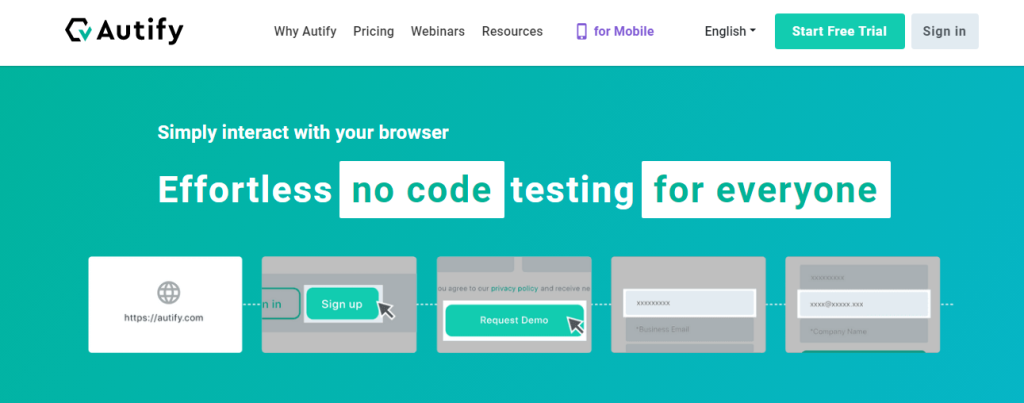
The Autify is a cloud-based automated testing tool that helps organizations quickly and easily create regression tests for web applications. It is the ultimate testing tool that saves your team time and money, allowing them to automate tests quickly and efficiently. This QA tester can automatically create, manage, execute, and report on tests in order to reduce release cycles for maximum productivity with a self-healing AI. It is easy to use, and users don’t need to write a single line of code.
It also offers multi-browser compatibility, allowing you to test your applications on different platforms and browsers. This tool offers comprehensive reporting that includes screenshots of failed tests for easy debugging, enabling developers to identify and fix any issues quickly. It also features advanced visual testing capabilities, allowing it to detect changes in the application’s user interface.
Pricing:
- Custom pricing for each plan
- Small: 14 days free trial
- Advance: Custom
- Enterprise: Custom
BugBug
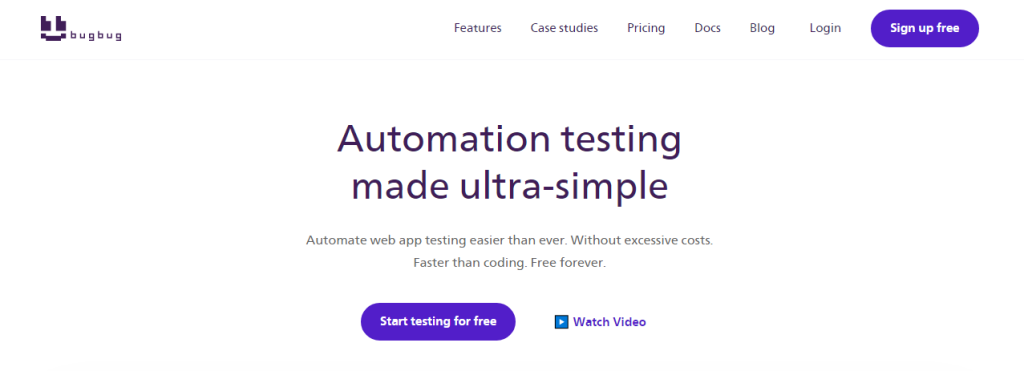
The BugBug is an AI technology based testing platform that can be used to automate and optimize manual QA testers. It is designed to help teams of any size to efficiently collaborate, accelerate time-to-market and gain insights into the quality of their applications. This is one of the QA testing tools that uses Machine Learning algorithms to identify potential bugs and automatically generate test cases. It offers an intuitive user interface, making it easy to use for testers of any skill level.
BugBug offers a comprehensive set of features including execution on multiple browsers and devices, real-time reporting for easy tracking and debugging, and advanced features like user-defined test case generation. This tool allows teams to quickly and accurately identify and fix application bugs.
Pricing:
- Free: $0/month
- Pro: $49/month
- Parallel: custom
Kualitee
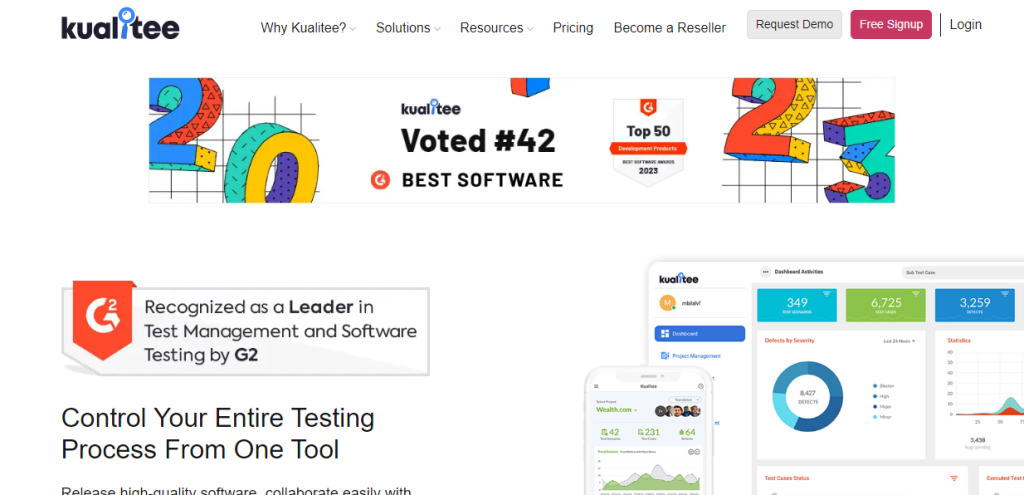
The Kualitee allows users to automate comprehensive tests for all types of applications, including web, mobile and desktop. It also offers a powerful collaboration workspace that is ideal for global teams who need to work together from different locations. This platform also provides an array of visual analytics tools, enabling testers to identify issues and areas of improvement quickly.
It is an all-in-one cloud-based QA platform that simplifies the software testing process. Boasting a simple user interface and adjustable dashboards that make report generation a breeze, this program is compatible with the most highly rated testing tools. Regardless of the operating system, device or browser type, you can rest assured it will work for you every time.
Pricing:
- Free: $0/month
- 1 user: $15/month
- 5 users: $75/month
10 Pearls

10pearls is a sophisticated and feature-rich automation testing platform that helps developers accelerate the software development process. This cloud-based solution supports both web and mobile applications, helping teams improve quality while reducing time to market. It simplifies the cooperation between developers, QA tester, and business analysts by providing comprehensive test coverage reports.
The tool allows users to effortlessly craft, capture, and run tests with its extensive suite of resources that seamlessly integrate with Selenium for effortless automation processes. The platform also offers advanced analytics to help users identify and fix issues quickly. It also provides a library of pre-configured test cases that can be used to speed up the development process.
Pricing:
- Customized
Testmo
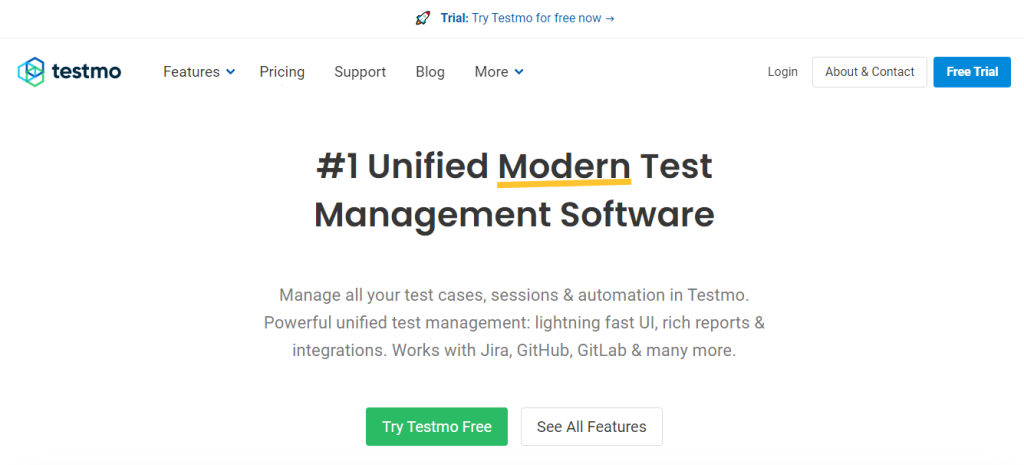
Testmo is an innovative mobile-first automation testing platform that streamlines the process of creating mobile applications. This tool provides users with an easy-to-use interface and includes built-in features that make it easy to create, execute, and evaluate automated tests on any mobile app. It also offers powerful analytics that helps users identify and prioritize areas for improvement.
Testmo is one of the perfect QA testing tools for developers who want to create high-quality mobile applications in a fraction of the time. This QA Tester is compatible with iOS and Android devices and supports many testing functions. With Testmo, users can automate complex scenarios such as cross-platform testing and web-service integration.
Pricing:
- Team: $99/month
- Business: $299/month
- Enterprise: $499/month
Conclusion:
Software development teams need to be armed with the right set of tools to ensure their applications are running properly and meeting customer needs. The QA testing tools mentioned in this article provide a variety of features and capabilities that make it easier for development teams to track, monitor and improve their applications. Each tool has its own strengths, so it’s important to review the features of each one and find the best fit for your team’s needs.




